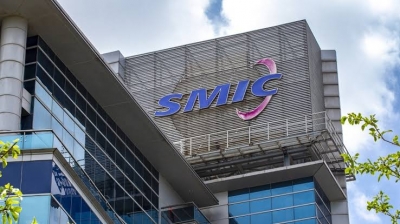profile/3143E05F14B1-53C4-4524-94AE-AD6376088FD2.jpeg
Ambassador001

CHINA MAKE 7NM CHIP BREAKTHROUGH AFTER U.S BAND
~2.0 mins read
Innosilicon, a Chinese company focusing on one-stop intellectual property (IP) and customized chip design, announced on Monday that it has completed the world's first chip tape-out and test based on the FinFET N+1 advanced technology of Semiconductor Manufacturing International Corp (SMIC), the largest Chinese chipmaker.
A tape-out is the final phase of a design life cycle for a chip design before manufacturing starts.
All IP is developed in-house and the functions are tested once, Innosilicon said on its website. The firm invested tens of millions of yuan into optimizing chip design in 2019, when SMIC's N+1 process was not that mature, according to Innosilicon.
N+1, SMIC's next-generation foundry node, offers a conspicuous improvement in performance and logic density. Compared with its existing 14-nanometer (nm) process, N+1 manufacturing technology can increase a chip's performance by 20 percent and cut its power consumption by 57 percent, said Liang Mengsong, co-CEO of SMIC.
Xiang Ligang, director-general of telecom industry association Information Consumption Alliance, told the Global Times that the successful tape-out indicates the reliability of the advanced technology. The N+1 process can basically be realized at the 8-nm level, while N+2 equals the 7-nm level.
"Issues around technology can be solved step by step, and our current technology can basically meet our demand," Xiang said.
However, making a technology breakthrough is one thing, but taking it to the point of mass production is another, and the latter is more crucial in the industry, according to Xiang.
In its annual report in April, SMIC said its N+1 process has made steady progress in research and development, and is "now in the customer engagement and product qualification stage."
On Monday, SMIC's shares on the Shanghai Stock Exchange rose 12.70 percent and its shares on the Hong Kong bourse gained 11.47 percent.
The N+1 tape-out breakthrough came on the heels of SMIC's falling onto the US' export sanctions list, as the latter has been relentlessly cracking down on Chinese high-tech firms.
The chipmaker acknowledged earlier this month that some of its suppliers had been restricted by US export controls, and given the uncertainties in US equipment supplies, its business may be affected.
The US sanctions may disrupt SMIC's next moves, including purchases of manufacturing equipment and raw materials, but the short-term impact would not be much given the Chinese firm's inventories, said Ma Jihua, a veteran analyst in the high-tech sector.
Despite being years behind Taiwan Semiconductor Manufacturing Co (TSMC), the world's largest semiconductor foundry, SMIC is catching up, based on its reinvention of mature technologies, Ma noted. In comparison, the chip technology used by TSMC has gradually neared its limits.
TSMC is accelerating mass production of the 5-nm process. The higher version of the 5-nm chips will enter mass production in 2021. Its 3-nm process will be in mass production by the second half of 2022.
A tape-out is the final phase of a design life cycle for a chip design before manufacturing starts.
All IP is developed in-house and the functions are tested once, Innosilicon said on its website. The firm invested tens of millions of yuan into optimizing chip design in 2019, when SMIC's N+1 process was not that mature, according to Innosilicon.
N+1, SMIC's next-generation foundry node, offers a conspicuous improvement in performance and logic density. Compared with its existing 14-nanometer (nm) process, N+1 manufacturing technology can increase a chip's performance by 20 percent and cut its power consumption by 57 percent, said Liang Mengsong, co-CEO of SMIC.
Xiang Ligang, director-general of telecom industry association Information Consumption Alliance, told the Global Times that the successful tape-out indicates the reliability of the advanced technology. The N+1 process can basically be realized at the 8-nm level, while N+2 equals the 7-nm level.
"Issues around technology can be solved step by step, and our current technology can basically meet our demand," Xiang said.
However, making a technology breakthrough is one thing, but taking it to the point of mass production is another, and the latter is more crucial in the industry, according to Xiang.
In its annual report in April, SMIC said its N+1 process has made steady progress in research and development, and is "now in the customer engagement and product qualification stage."
On Monday, SMIC's shares on the Shanghai Stock Exchange rose 12.70 percent and its shares on the Hong Kong bourse gained 11.47 percent.
The N+1 tape-out breakthrough came on the heels of SMIC's falling onto the US' export sanctions list, as the latter has been relentlessly cracking down on Chinese high-tech firms.
The chipmaker acknowledged earlier this month that some of its suppliers had been restricted by US export controls, and given the uncertainties in US equipment supplies, its business may be affected.
The US sanctions may disrupt SMIC's next moves, including purchases of manufacturing equipment and raw materials, but the short-term impact would not be much given the Chinese firm's inventories, said Ma Jihua, a veteran analyst in the high-tech sector.
Despite being years behind Taiwan Semiconductor Manufacturing Co (TSMC), the world's largest semiconductor foundry, SMIC is catching up, based on its reinvention of mature technologies, Ma noted. In comparison, the chip technology used by TSMC has gradually neared its limits.
TSMC is accelerating mass production of the 5-nm process. The higher version of the 5-nm chips will enter mass production in 2021. Its 3-nm process will be in mass production by the second half of 2022.
profile/3143E05F14B1-53C4-4524-94AE-AD6376088FD2.jpeg
Ambassador001

APPLE LIST CHINA NAVIGATION NETWORK(BEIDUO) IN IPHONE 12
~1.3 mins read
At the launch event on Wednesday Beijing time, Apple officially released its new 5G enabled iPhone 12 models which for the first time support China's BeiDou Navigation Satellite System (BDS).
The change signals that BDS has been widely recognized by the market as a member of Global Navigation Satellite System (GNSS), analysts said.
BDS is China's large space-based system and one of four global navigation networks, alongside the US' GPS, Russia's GLONASS and the EU's Galileo.
This marks the first time that an Apple mobile phone has officially announced to support the Chinese self-developed navigation system.
Other smartphone brands in China, including Huawei, Meizu and Xiaomi, have already include BeiDou in their location and navigation systems in most of their models.
It is natural for Apple to embrace the system following the completion of BeiDou-3 system, Ma Jihua, a veteran analyst in the high-tech sector told the Global Times on Wednesday.
"From a technical point of view, BDS networking is not inferior to GPS in many respects with its excellent location and navigation capabilities. In the future, there will be more mobile apps bearing the name of BDS and it is a natural for Apple to opt for the system in order to provide convenience and better service to users," Ma said.
Currently, BDS covers more than 200 countries and regions, with more than 100 million users and 200 million daily services.
In terms of the marketing strategy, the inclusion of BDS will help Apple gain more understanding and support from Chinese users, which is conducive to sales in the Chinese mainland market, Ma added.
"Given the rising tension between China and US and the trade and technology war, Apple's move to list BDS in its new iPhone could also been seen as a self-protection measure to avoid being hit in the war," Ma said.
Advertisement

Link socials
Matches
Loading...
